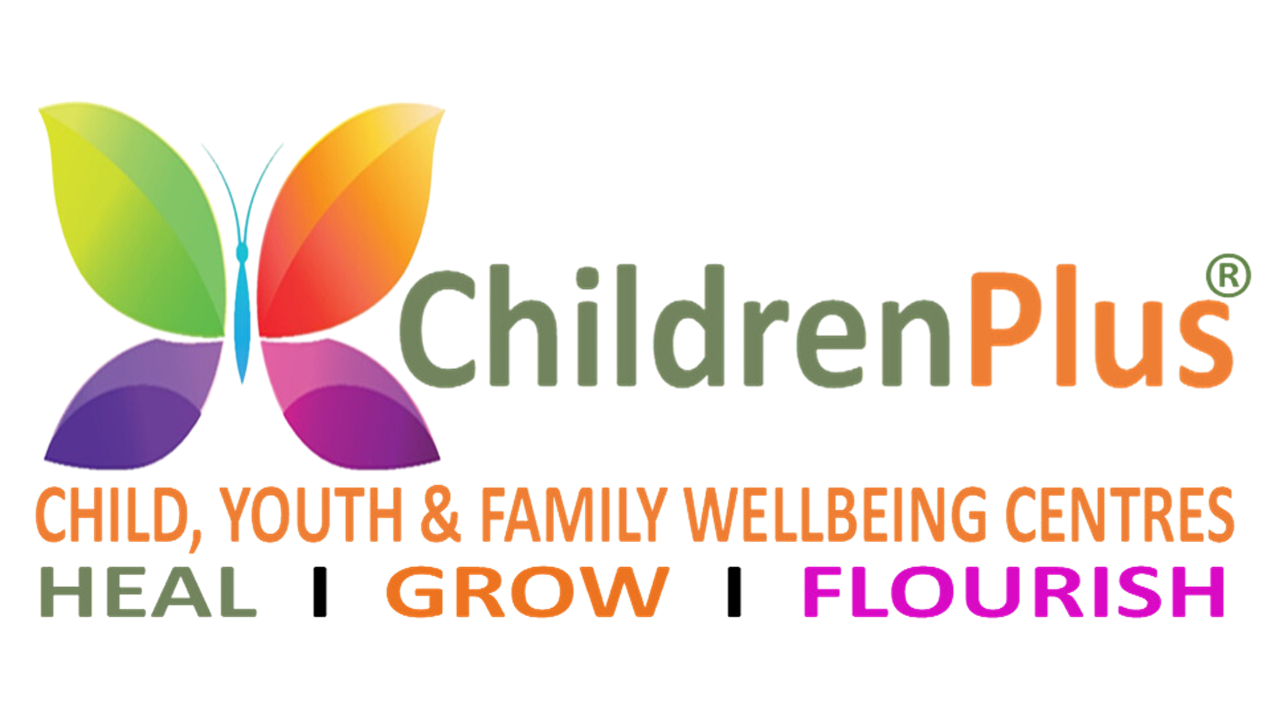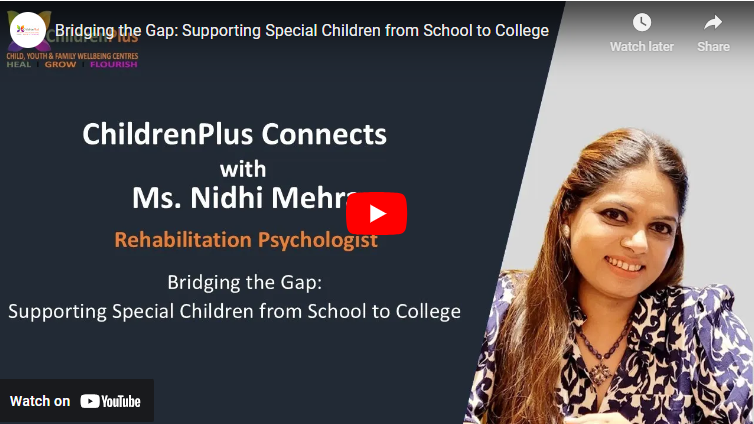Summary: In this episode of the ChildrenPlus Connects series we address the transition of students with special needs from secondary school to higher education in India. It highlights the legal framework, types of learning disabilities, and the importance of timely assessment for appropriate intervention.
Parents are encouraged to embrace their child’s neurodiversity and utilize accommodations offered by educational boards like CBSE. Strategic planning for college admissions is crucial, including meticulous documentation, awareness of disability quotas, and informed career counseling.
A multidisciplinary support system, encompassing family, educators, and therapists, is vital for successful navigation of this phase. Ultimately, aligning educational choices with the student’s strengths and aspirations paves the way for a fulfilling college experience.
Read on for an in-depth discussion on this issue…
Is your child with special needs approaching college age in India? This transition can be challenging, but with the right information and support, it can also be a successful and fulfilling experience. In this episode of ChildrenPlus Connects, Mrs. Nidhi Dawar Mehra, a rehabilitation psychologist with over 15 years of experience working with special needs children in India, offers invaluable advice to parents.
Understanding the Disabilities Act in India
The conversation begins with a focus on the Indian Disabilities Act and the types of disabilities it covers. Ms. Mehra highlights the 2016 revision, which expanded the recognized disabilities to 21, now including Specific Learning Disabilities (SLD). This is a significant step towards inclusivity and support for children with diverse needs in India.
What is Specific Learning Disability (SLD)?
Ms. Mehra explains that SLD encompasses various learning challenges, such as dyslexia (reading and writing difficulties), dyscalculia (math difficulties), and dysgraphia (writing difficulties). She emphasizes the importance of formal assessments in identifying these disabilities and differentiating them from temporary learning difficulties.
When to Seek a Formal Assessment for Your Child
Parents often wonder when it’s the right time to seek a formal assessment for their child. Ms. Mehra recommends considering an assessment if a child shows persistent learning gaps for over six months in various environments (school and home). Formal assessments are also recommended in class 9th and 12th to access accommodations provided by educational boards like CBSE and Indian universities.
The Parent’s Journey: Acceptance and Support
Accepting that your child has special needs can be an emotional journey. Ms. Mehra acknowledges the challenges parents face and emphasizes the importance of acceptance. She encourages parents to view these challenges as neurodiversity rather than diseases, focusing on bridging gaps and utilizing accommodations.
CBSE Accommodations and Support Systems in India
Ms. Mehra discusses the accommodations provided by educational boards like CBSE in India, such as exemptions from certain subjects or alternative assessments. She urges parents to utilize these provisions to support their child’s learning journey and reduce stress and anxiety.
Preparing for College Admissions in India
The transition from school to college can be particularly daunting for students with special needs. Ms. Mehra provides practical advice on preparing for college admissions in India, including:
- Documentation: Ensuring all necessary documents, such as formal assessments, disability certificates, and academic records, are updated and readily available.
- Awareness: Being aware of the disability quota available in government and some private universities in India.
- Career Counseling: Working with career counselors and special educators to choose the right academic or vocational path that aligns with the child’s strengths and interests.
Building a Strong Support Network for Your Child
Ms. Mehra stresses the importance of a multidisciplinary approach involving special educators, speech therapists, occupational therapists, and other professionals as needed. She also encourages parents to build a strong support network with family, friends, and other parents to navigate this journey effectively.
Focusing on Strengths and Dreams
In conclusion, Ms. Mehra leaves parents with a powerful message: focus on your child’s strengths and dreams, not just your own aspirations. By accepting their child’s unique needs and providing the right support, parents can empower their children to achieve their full potential and lead fulfilling lives.
ChildrenPlus: Supporting Your Child’s Journey in Noida
ChildrenPlus offers comprehensive support for children with special needs in Noida, India, including assessments, therapies, and counseling services. We are committed to partnering with parents and educators to help children thrive academically and emotionally.
Contact us today to learn more about how we can support your child’s journey.
Follow us:

